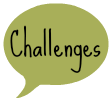A lot of people can get pretty worked up about "bad grammar". It's no surprise, since as I've mentioned before, the way you talk can tell others a lot about you (whether true or false), including your socioeconomic status and education. Here are a just few examples of people getting pretty excited about grammar in a thread called "Post Your Favorite Pet Peeve" in a forum I frequent (usernames omitted to protect the innocent):
You have "fewer" things (discrete items) and "less" stuff (non-discrete things like water). You don't have "less" things, that's just wrong.
A picture is pronounced "picture", not pitcher for god's sake, you sound like an illiterate rube.
If you say "crick" instead of "creek," you are a butt.
...when someone says someone like "He's older than me" it drives me f***ing insane. The full sentence is "he's older than I am" not "he's older than me am" you illiterate troglodyte. I'm not going to correct your 5 year old grammar but just know I noticed.
[My pet peeve is] people with Chicagoland accents.So here's the key question: in what sense are people using bad grammar if they say "less apples" instead of "fewer apples"?
A linguist's job is to try to understand how language works--what information is stored in the brain when you know a language, what happens in your brain when you speak and listen, how people use language in different social situations, how languages change over time, and so on. Obviously, as part of this endeavor we try to gather information from as many languages as we can. In this course of doing this, linguists have noticed a couple things:
- All human languages (except pidgins, which are never anyone's native language) are systematic--that is, they follow a set of rules for how to pronounce things, how to combine words into sentences, and so on. The set of rules is called a grammar.
- All human languages are capable of expressing the full range of human thought (although Language X might need more words to express a particular thought than Language Y does).
So languages are kind of like dogs: they have a huge amount of variety on the surface, but their fundamental features are the same everywhere. To linguists, this means that objectively, there's no good reason to make value judgments about any particular language. No language or dialect is better than any other.
So in this sense, every person has "good grammar" when speaking their native language(s)--because they're obeying the grammar of that language. You can only use bad grammar when speaking a language you don't know natively.
Does this mean that everyone complaining about "bad grammar" is full of it? Not exactly. As I said above, different speech varieties carry a ton of social implications with them. Thanks to the vagaries of history, some dialects will end up with positive connotations--wealth, education, and so on--while others are seen more negatively; African-American English is a prime example of this, for obvious reasons.
So "bad grammar" in the typical sense (the way the people I quoted above would use it) really has nothing to do with language itself, but with all the divisions and prejudices existing in a society. "Bad grammar" is just "grammar associated with low social prestige". People's attitudes toward different ways of speaking are very interesting to sociolinguists, who study the interaction of language and society. But it's unfortunate when someone like Rachel Jeantel is told that the language she learned as a child is stupid, illogical, and lazy--and by extension, so is she.
As an afterthought I'll point out that there's nothing wrong with having a standardized language; it helps facilitate communication when everyone's using the same dialect. It's also pretty much inevitable in any human society. I just want my dear readers to stop and think before judging someone's intelligence based on the way they talk!








No comments:
Post a Comment